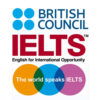You can book your IELTS Test with British council through ASCOM. We also have IELTS preparation classes.
Undergraduate
What is an Undergraduate Qualification?
An undergraduate qualification in the overseas Institutions is an academic step up from A-levels (or their equivalents) and is typically gained by completing a program of study at university. There are three broad types of course:
- those that lead to a degree;
- intermediate qualifications in the form of certificates or diplomas; and
- those that combine academic study with workplace learning.
The variety of undergraduate courses and subjects on offer mean it is important to fully research which option suits you best. There are various different types of Bachelor’s degrees out there. But what do abbreviations such as B.Sc. or B.A. mean?
Bachelor of Engineering (B.Engg):
Bachelor of Engineering (B.Engg) is the degree awarded for Civil, Mechanical, Electrical, Mechatronics and petroleum subject. The duration of Bachelor in engineering degree is usually four years.
Bachelor’s Degree (BA, BSc):
Your choice of subject will determine the precise name of the qualification. Bachelor of Arts (BA) and Bachelor of Science (BSc) is the most common, but there are others such as Bachelor of Education (BEd) and Bachelor of Laws (LLB).
Your course will usually last three or four years, although some subjects such as medicine will take longer.
Higher National Diploma (HND):
An HND is equivalent to the second year of a Bachelor’s degree. It takes two years to study full-time or three years part-time. They differ from degrees in that they focus on vocational skills needed for specific areas of work.
Diploma of Higher Education (DipHE):
A DipHE is the academic counterpart to the HND, as it is also equivalent to two years of a full degree. It is usually awarded following the successful completion of two years of a full-time first degree at a higher education institution.
National Vocational Qualification (NVQ):
An NVQ at Levels 4-6 is equivalent to a degree. However, these qualifications focus more on practical skills than academic study, taking place within the context of your current full or part-time work. As NVQs are work-based, instead of taking exams you are assessed by demonstrating your ability to do a job over a period of time. You will be observed by an assessor and submit a portfolio, and your performance in each unit will be measured against national occupational standards.
These courses are typically provided by further education colleges and to gain entry you’ll need one or two A-levels or HSSC. They are mostly classroom taught, but assessment is by projects, assignments and practical tasks rather than exams. You’ll also undertake work placements.
Undergraduate Degrees
For your first degree, most students undertake a three-year/ four years bachelor’s, featuring a combination of seminars, workshops and lectures made up of different modules. Certain modules are optional, and as such you can tailor study to what you are most interested in. Science and engineering degrees usually take four years and include a research project or dissertation.
Joint degrees are another option – splitting your time across two different courses – while most universities also offer sandwich degrees whereby a year is taken out so a placement can be undertaken in industry. Upon graduation, you’ll have the option of either finding full-time employment and beginning your career, or moving into postgraduate study.
Book your IELTS exam
English / TOFEL / GRE Requirements
Details of all the English language qualifications, and minimum scores, which are accepted for undergraduate study are provided below. Please note that, in assessing whether you have sufficient English language to successfully complete your course, universities also consider these qualifications alongside other evidence of English language ability included in your application, for example a degree completed in English or the personal statement.
- International English Language Testing Service (IELTS) Overall score of 6.0 or above, with at least 5.5 in each
- Test of English as a Foreign Language (TOEFL) 80 or higher on the TOEFL iBT or 550 or higher on the paper-based exam
- Graduate Record Examinations (GRE) 153 on GRE quantitative section AND at least 140 on GRE verbal reasoning
How ASCOM Consulting help with your Application
If you wish to learn more about undergraduate degrees, visit our office or contact us now.

Need Help?
We are here to help! Feel free to drop in your query via our form. Our team will reach back to you shortly
Book your IELTS exam
You can book your IELTS Test with British council through ASCOM. We also have IELTS preparation classes.



